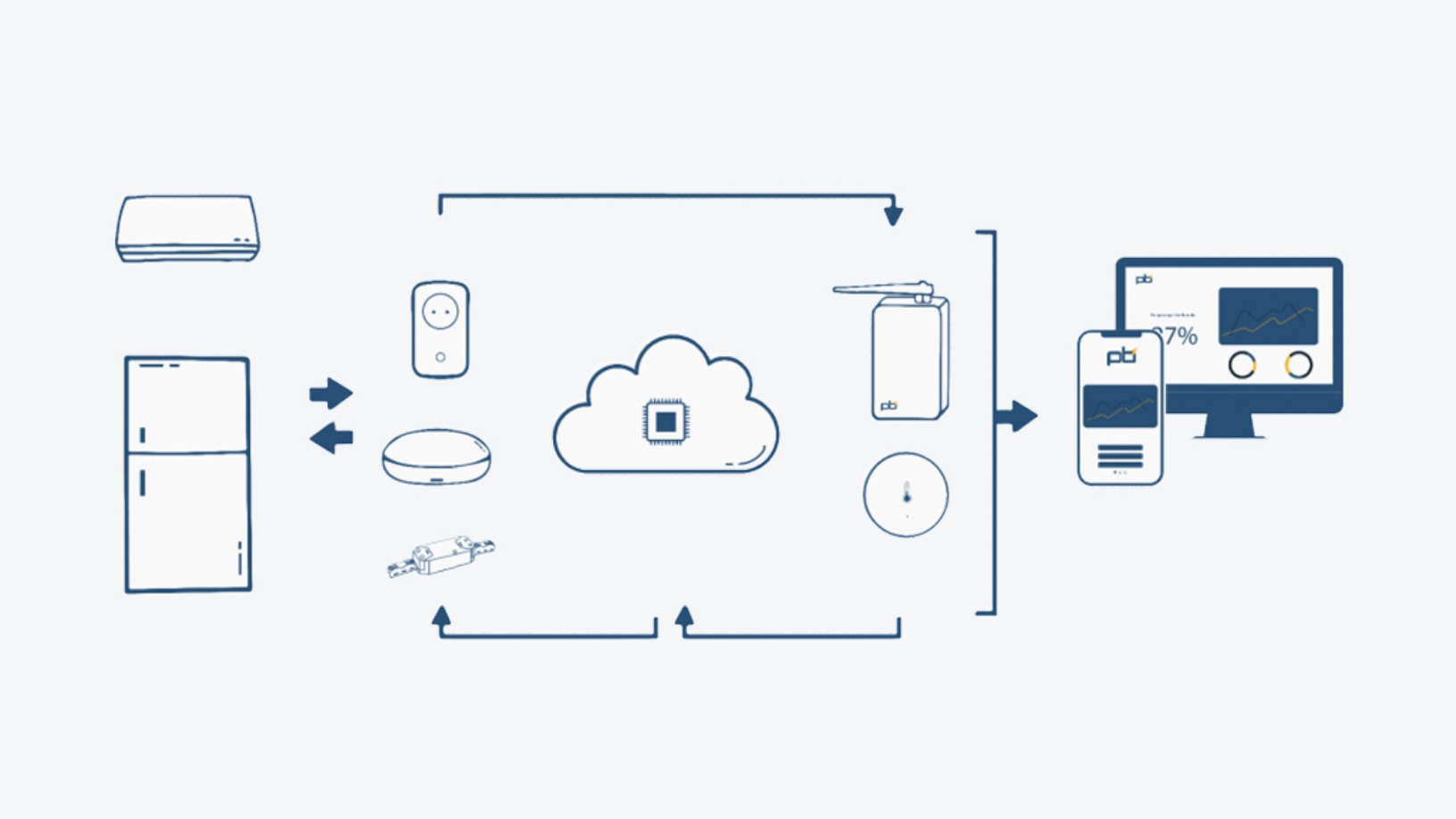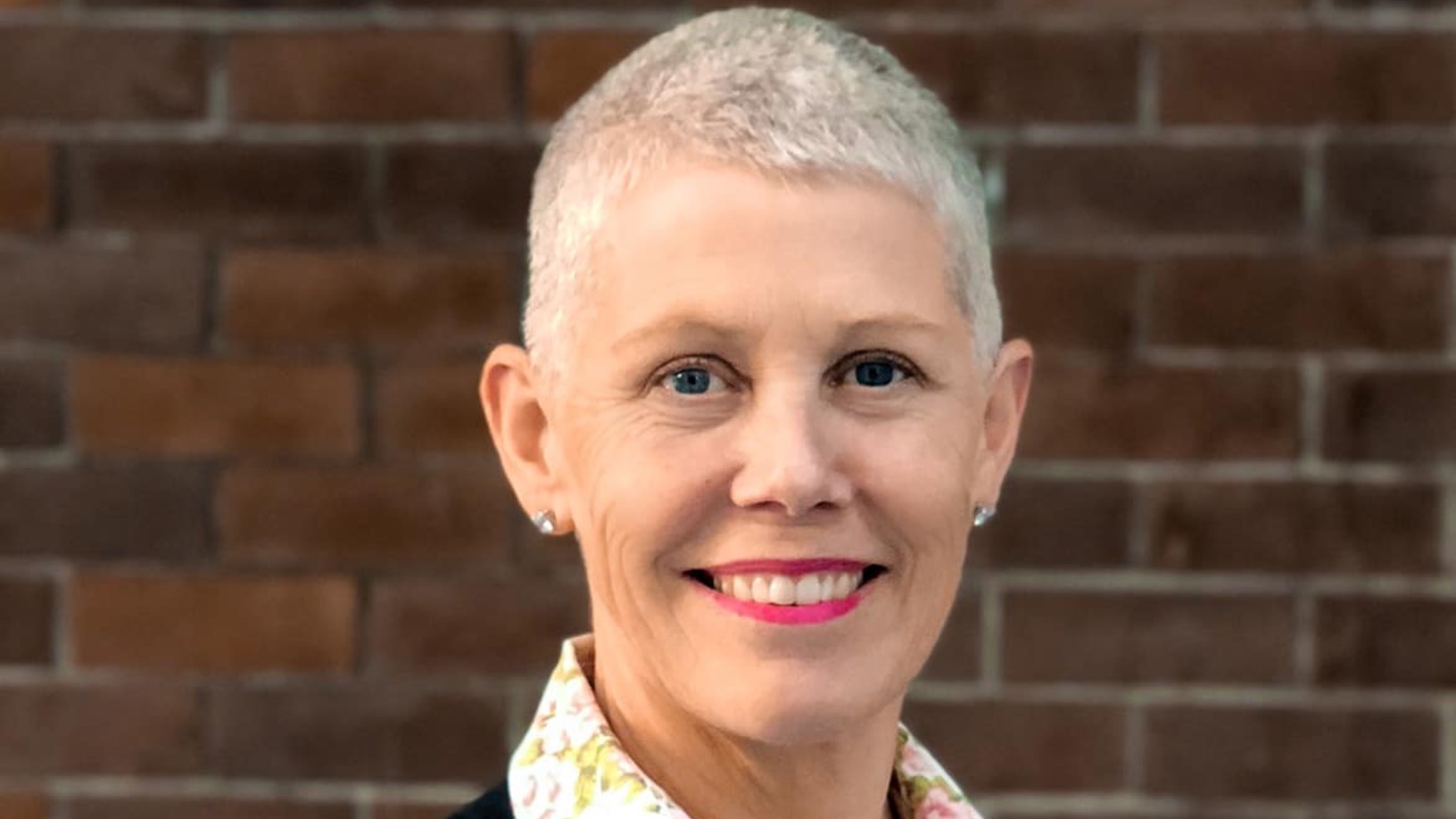In a country with a warm, tropical climate like Indonesia, the use of air conditioning and refrigeration can be particularly high, especially for small businesses like restaurants and convenience stores. Local startup Powerbrain has developed an affordable energy management system for SMEs that want to save on electricity bills but find current systems in the market too expensive or complex.
Combining IoT hardware with software-controlled automation, Powerbrain enables businesses to closely monitor energy consumption, automate processes like shutting down air conditioners, and even tune their units to enter low-power modes during store-closing hours. Mobile and web apps are available to help clients monitor energy consumption in real time.
Rilwanu Lukman, Chief Marketing Officer and co-founder of Powerbrain, said clients have reduced their power costs by an average of 18% using its system. “Powerbrain was established during the pandemic because we can help SMEs cut operational costs by saving energy,” Lukman said in an interview.
Clients are satisfied, he added, noting that 90% of them have continued to use Powerbrain since the company started in October 2020.
“A survey of our cafe clients shows that cooling systems take up to 60% of their energy consumption," Lukman said of Powerbrain’s energy saving approach. “We designed tools to tackle the source of largest energy consumption, so our clients can get significant savings.”
Powerbrain is currently managing energy use in 36 properties, most of which are located in Greater Jakarta. Its clients range from convenience store franchisees of Alfamart and Indomaret, to cafes, restaurants and pharmacies. The startup is currently bootstrapped, but is in talks to raise up to $300,000 in seed funding by the end of year, Lukman said.
No upfront costs
While there are already companies offering power management services in Indonesia, Lukman said these solutions are primarily catered to larger buildings. Each solution can take months to fully implement, and they are expensive for SMEs and managers of smaller properties. Powerbrain is targeting such properties, which, according to Lukman, waste IDR 60tn worth of electricity every year because of energy inefficiency.
Unlike solutions made for large buildings, Powerbrain’s system takes only a few weeks to put in place. Powerbrain first installs power-monitoring and controller hardware in a prospective client’s property, then spends 7 to 10 days monitoring the energy use in the building. After this, Powerbrain activates the power-saving controls through its automation software. Control over power use is achieved through two main devices: a smart relay that controls the amount of power flowing into each device, and a smart remote that interacts with infrared-controlled devices like air conditioners.
If the customer is satisfied with the energy savings achieved during the trial period, they can begin paying for the system. Powerbrain charges no upfront cost for its solution, while setting its monthly subscription fee at 30–40% of the power savings that the client enjoys during the month.
“For example, if a client saves IDR 1m in their power bills by using our service for that month, they will pay about IDR 400,000 in subscription fees to us. The net savings they make is therefore IDR 600,000,” Lukman said.
Monitoring and controlling energy consumption also helps clients beyond saving on their utility bills. By controlling each device to operate within its normal boundaries, each device’s useful lifespan can be extended. “Our system also provides early warning for potentially fatal errors, based on anomalies in power consumption,” Lukman added. All power monitoring and early warning information is automatically sent to Powerbrain’s mobile and web dashboard apps.
Educating the market
Powerbrain was founded based on the experiences of CEO and co-founder Irvan Farasatha, who worked at Hydro Smart, a smart energy company based in Italy, as an automation engineer in early 2019. He holds a master’s in energy engineering from the local Politecnico di Milano.
According to Lukman, Farasatha worked on a project at Hydro Smart to optimize a supermarket energy savings, which eventually implemented successfully in reducing energy consumption by 21% by using smart technology.
"Irvan then realized that the potential of smart energy in Indonesia is massive as Indonesia has millions of small and medium scale buildings," he said. Lukman himself had briefly worked in social media management, but his interest in sustainable energy led him to join Farasatha.
Apart from helping SMEs save on operational costs, the pair founded Powerbrain also because of their concerns about climate change. “The energy use of retail properties, regardless of size, is very high, especially for the cooling systems,” Lukman said. Saving energy automatically means reducing the carbon footprint of each property, and so the co-founders decided to take this “small step” to help stave off the effects of climate change.
Although there are already some SMEs that are interested in power savings, many more in the market are “not yet educated on the importance of energy savings,” Lukman said. According to Powerbrain, the market for energy management solutions in Indonesia is currently valued around $170m, of which Powerbrain aims to get a $5m share by 2025.
To expand the market, Powerbrain regularly posts energy saving tips on their social media channels. “We are not aggressively marketing through social media because our target market is B2B,” Lukman said, “but we cannot close our eyes to the fact that the market is not ready.” Powerbrain also presents case studies to prospective clients to better illustrate the benefits of energy management.
Expanding to large buildings
While Powerbrain has made some inroads, Lukman said the prolonged Covid-19 pandemic has made expansion difficult: "Some businesses have had to temporarily close [due to pandemic restrictions], and so we haven’t been able to approach as many restaurants and cafes as we’d like.”
To supplement its revenue stream, Powerbrain has begun offering services for mechanical and electrical systems installation. “By offering mechanical and electrical installation services, we also get a new opportunity to offer our energy management products,” Lukman said.
Powerbrain is also in advanced talks with convenience store brand owners and office operators. So far, the startup has been selling to store franchisees, but now it wants to reach the brand owners directly. Hence it’s in talks with the central management of the Alfamart retailer chain, as well as that of Idolmart, a smaller convenience store brand with roughly 100 locations in Greater Jakarta. “We aim to close one deal with a big retail company this year,” Lukman said.
To support these expansion goals, Powerbrain is raising seed funding so it can develop its products to cater to this segment, as well as to patent its systems and build barriers to entry. The company will also expand its team from the current five full-time employees, with priority given to product development and sales.
Powerbrain will also explore expanding to the residential and large building markets. Lukman said the company would have to adapt its approaches to accommodate the differences in how energy is managed in these buildings.
“For example, our system is made to control individual air-conditioning units, but in larger buildings we will have to control a centralized ventilation system," he said. For residential properties, Powerbrain will likely focus on simple energy monitoring to help homeowners save energy independently, he added.
CORRECTION: This article has been updated to clarify the link between the previous work experience of CEO and co-founder Irvan Farasatha and the founding of Powerbrain.












